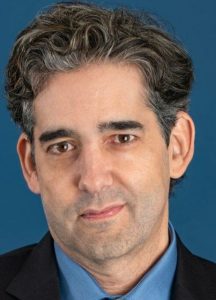EP 792 Dying at Home is Trending in America
 The process of dying in America has changed dramatically over the last twenty years. The process was often hidden away from family in a hospital setting. Today more than half of deaths are at home surrounded by loved ones. Along with this new American approach comes a range of responsibilities and stresses which can either bring families closer or tear them apart. The primary caregivers may feel that they are ill-equipped for the responsibilities involved or that they are not given adequate support by others. In their book “Dying at Home”, CM Cassady and our guest, Andrea Sankar, explore all of the issues surrounding this process, from having all medical and legal directives in place to burial and bereavement. The hospice and palliative care movements in America are fast growing, though government support for families through things like Family and Medical Leave still leave much to be desired in many parts of America. This podcast and their book are essential tools in dealing with an issue few want to discuss, yet all of us will face.
The process of dying in America has changed dramatically over the last twenty years. The process was often hidden away from family in a hospital setting. Today more than half of deaths are at home surrounded by loved ones. Along with this new American approach comes a range of responsibilities and stresses which can either bring families closer or tear them apart. The primary caregivers may feel that they are ill-equipped for the responsibilities involved or that they are not given adequate support by others. In their book “Dying at Home”, CM Cassady and our guest, Andrea Sankar, explore all of the issues surrounding this process, from having all medical and legal directives in place to burial and bereavement. The hospice and palliative care movements in America are fast growing, though government support for families through things like Family and Medical Leave still leave much to be desired in many parts of America. This podcast and their book are essential tools in dealing with an issue few want to discuss, yet all of us will face.
Podcast: Play in new window | Download
 ‘It’s a part of me’ said one student when asked about a possible ban on smartphones in her classroom. While we can all come up with reasons that smartphone use is a distraction and worse in the classroom, who cannot sympathize with that student’s feeling? Given the amount of time we spend on these devices, and how they have become the most utilized part of our digital array of products, we know what she means. And, yet, empirically, the evidence of their negative impact on attention to task and resultant test result declines, school districts are increasingly coming to the realization that the presence of them is no longer manageable in the classroom. The percentage of schools limiting use, in a variety of ways, is 75 percent of the country. It seems to be one of the few issues that finds agreement among liberals and conservatives. To discuss this growing trend, and making a case for it, is Professor Arnold Glass, a psychology professor at Rutgers University and someone who has researched this subject extensively.
‘It’s a part of me’ said one student when asked about a possible ban on smartphones in her classroom. While we can all come up with reasons that smartphone use is a distraction and worse in the classroom, who cannot sympathize with that student’s feeling? Given the amount of time we spend on these devices, and how they have become the most utilized part of our digital array of products, we know what she means. And, yet, empirically, the evidence of their negative impact on attention to task and resultant test result declines, school districts are increasingly coming to the realization that the presence of them is no longer manageable in the classroom. The percentage of schools limiting use, in a variety of ways, is 75 percent of the country. It seems to be one of the few issues that finds agreement among liberals and conservatives. To discuss this growing trend, and making a case for it, is Professor Arnold Glass, a psychology professor at Rutgers University and someone who has researched this subject extensively. Among demographers and others, even marketers, there are serious conversations going on about the consequences of plummeting birth rates. In the way that we often discuss retirement–do you have enough money to live on the rest of your life–we ignore the psychological, as well as economic,l effects of couples having fewer children and our society as a whole. Sure, the federal safety net programs, primarily Social Security and Medicare, both targeted at older Americans generally, will suffer, but what about the psychology of human flourishing and the energy and innovation a society relies on to move forward? Without more ‘future adults’ and the contributions they will make, much is in peril. To provide more context and nuance to a concern about falling birth rates is Clay Routledge, the Vice President of Research and Director of the Human Flourishing Lab at Archbridge Institute. He’s an existential psychologist(and he will explain that term) and has a new book out called “Past Forward.” His weekly newsletter is Flourishing Friday.
Among demographers and others, even marketers, there are serious conversations going on about the consequences of plummeting birth rates. In the way that we often discuss retirement–do you have enough money to live on the rest of your life–we ignore the psychological, as well as economic,l effects of couples having fewer children and our society as a whole. Sure, the federal safety net programs, primarily Social Security and Medicare, both targeted at older Americans generally, will suffer, but what about the psychology of human flourishing and the energy and innovation a society relies on to move forward? Without more ‘future adults’ and the contributions they will make, much is in peril. To provide more context and nuance to a concern about falling birth rates is Clay Routledge, the Vice President of Research and Director of the Human Flourishing Lab at Archbridge Institute. He’s an existential psychologist(and he will explain that term) and has a new book out called “Past Forward.” His weekly newsletter is Flourishing Friday. With Kamala Harris as the Democratic nominee for President, we have come to know more about the sororities which have become family for Black women in Historically Black colleges. Though bias and biology have made them members of two marginalized groups since the nation’s founding, Black women nonetheless have been enrolling in college at rates higher than any other demographic group since the 1940’s. And when a certain politician calls part of our economy ‘black jobs'(short for menial and low wage)he certainly hasn’t caught up to this trend. While Black women have been going into many fields, well beyond teaching and nursing, the pay inequities with white men and women remains vast. Rachelle Winkle-Wagner in her book, “The Chosen We: Black Women’s Empowerment in Higher Education” we read oral histories of Black women who graduated between 1954 and 2014. Some attended Historically Black colleges and others that are predominantly white. Their need for community was easily satisfied in the former and a challenge in the latter. We go beyond the halls of academia to discuss the experience of Black women in America in challenging times as questions about diversity, equity, and inclusion have taken on a decidedly political caste.
With Kamala Harris as the Democratic nominee for President, we have come to know more about the sororities which have become family for Black women in Historically Black colleges. Though bias and biology have made them members of two marginalized groups since the nation’s founding, Black women nonetheless have been enrolling in college at rates higher than any other demographic group since the 1940’s. And when a certain politician calls part of our economy ‘black jobs'(short for menial and low wage)he certainly hasn’t caught up to this trend. While Black women have been going into many fields, well beyond teaching and nursing, the pay inequities with white men and women remains vast. Rachelle Winkle-Wagner in her book, “The Chosen We: Black Women’s Empowerment in Higher Education” we read oral histories of Black women who graduated between 1954 and 2014. Some attended Historically Black colleges and others that are predominantly white. Their need for community was easily satisfied in the former and a challenge in the latter. We go beyond the halls of academia to discuss the experience of Black women in America in challenging times as questions about diversity, equity, and inclusion have taken on a decidedly political caste. Is it as easy as just being good at music, painting, writing or other creative pursuits and the world will naturally beat a path to your door? Not really. I asked our guest how many Taylor Swifts wannabees, with talent, may be walking around today without a recording contract a realistic path to fame whose musical story may end with smoky club open mics in her town. He posited a guess of 5,000. That’s just the way it is. There are many variables that go into achieving success and fame for a talent or particular genius in your field. We all know too well that many people in America look to become famous for being well known and, admittedly(the Kardashians are you listening?)having a great sense of style. Honestly, though, why do some folks break through the glut of talent and rise to the top/ Professor Cass Sunstein, of Harvard Law School, considers the elements in his rollicking new book, “How to Become Famous: Lost Einsteins, Forgotten Superstars, and How The Beatles Came to Be.” You will be captivated by stories behind Fleetwood Mac, Bob Dylan, Robert Johnson, Connie Converse, and Sixto Rodriquez, among many others. That’s the point. Some you’ve heard of. Some you haven’t. Why is that? Listen in and find out.
Is it as easy as just being good at music, painting, writing or other creative pursuits and the world will naturally beat a path to your door? Not really. I asked our guest how many Taylor Swifts wannabees, with talent, may be walking around today without a recording contract a realistic path to fame whose musical story may end with smoky club open mics in her town. He posited a guess of 5,000. That’s just the way it is. There are many variables that go into achieving success and fame for a talent or particular genius in your field. We all know too well that many people in America look to become famous for being well known and, admittedly(the Kardashians are you listening?)having a great sense of style. Honestly, though, why do some folks break through the glut of talent and rise to the top/ Professor Cass Sunstein, of Harvard Law School, considers the elements in his rollicking new book, “How to Become Famous: Lost Einsteins, Forgotten Superstars, and How The Beatles Came to Be.” You will be captivated by stories behind Fleetwood Mac, Bob Dylan, Robert Johnson, Connie Converse, and Sixto Rodriquez, among many others. That’s the point. Some you’ve heard of. Some you haven’t. Why is that? Listen in and find out. When the discussion turns to inner-city gun violence, many people throw up their hands in despair that it’s just part of the fabric of American life. Can that be true? As long as we choose not to address the root causes of the problem and find innovative approaches to it, I fear it will continue, despite the noble efforts of credible messengers and violence interrupters in cities all across our nation. It is a small cohort of young people, generally Black, young and dispossessed engaging in this deadly gun play which wreaks havoc for people living in their neighborhood, according to a Josiah Bates, a reporter whose beat is this issue and the author of “In These Streets: Reporting from the Front Lines of Inner-City Gun Violence.” While much is fueled by the intersection of drugs and guns, these same young people often have easy access to guns and no conflict resolution skills, leading to a simple slight or unpaid debt as the cause of the mayhem. We will delve into the issues of policing these in these communities and long-term approaches to solving a vexing American phenomenon.
When the discussion turns to inner-city gun violence, many people throw up their hands in despair that it’s just part of the fabric of American life. Can that be true? As long as we choose not to address the root causes of the problem and find innovative approaches to it, I fear it will continue, despite the noble efforts of credible messengers and violence interrupters in cities all across our nation. It is a small cohort of young people, generally Black, young and dispossessed engaging in this deadly gun play which wreaks havoc for people living in their neighborhood, according to a Josiah Bates, a reporter whose beat is this issue and the author of “In These Streets: Reporting from the Front Lines of Inner-City Gun Violence.” While much is fueled by the intersection of drugs and guns, these same young people often have easy access to guns and no conflict resolution skills, leading to a simple slight or unpaid debt as the cause of the mayhem. We will delve into the issues of policing these in these communities and long-term approaches to solving a vexing American phenomenon. There is a serious economic debate going on in America that hasn’t truly permeated the presidential campaign, but underlies the economic future of the country. These debates are happening among members of the U.S. Senate Joint Economic Committee as to whether the path forward will be better by maintaining the Biden approach of an industrial policy built on developing a clean energy future and government investments in reshoring computer chips and high tech manufacturing or the Trump approach of extending the Tax Cuts and Jobs Act passed in his term, which must be renewed in 2025. It cut corporate tax rates from 35% to 21%. This podcast was recorded before President Biden quit the race, but the basic differences between the parties remain. Joining us to discuss this and a range of other economic issues is Kenneth Rapoza an industry analyst from the Coalition for a Prosperous America. He is a former foreign correspondent for the Wall Street Journal and a senior contributor to Forbes covering China. It’s a lively discussion of the American economy and strategies of both parties in reshoring industrial jobs.
There is a serious economic debate going on in America that hasn’t truly permeated the presidential campaign, but underlies the economic future of the country. These debates are happening among members of the U.S. Senate Joint Economic Committee as to whether the path forward will be better by maintaining the Biden approach of an industrial policy built on developing a clean energy future and government investments in reshoring computer chips and high tech manufacturing or the Trump approach of extending the Tax Cuts and Jobs Act passed in his term, which must be renewed in 2025. It cut corporate tax rates from 35% to 21%. This podcast was recorded before President Biden quit the race, but the basic differences between the parties remain. Joining us to discuss this and a range of other economic issues is Kenneth Rapoza an industry analyst from the Coalition for a Prosperous America. He is a former foreign correspondent for the Wall Street Journal and a senior contributor to Forbes covering China. It’s a lively discussion of the American economy and strategies of both parties in reshoring industrial jobs. While many debate the essence of the Robert Mueller report any fair reading of it details chapter and verse how the Russians tried to influence the 2016 election with social media accounts set up under names like Blacklist or the Heart of Texas as they posed as grassroots activists on one side or the other of the political aisle while targeting much of their activity in swing states. All this in the interest of sowing discord in America. While it’s hard to say definitively that it turned that election, the discord they sought has arrived in a torrent. And now these tactics of disinformation–the deliberate spreading of lies as truth is the most powerful weapon today in our political discourse. It’s capstone activity was Donald Trump’s “Big Lie” challenging the 2020 election results of what his own chief of election security called the fairest and most secure election in our nation’s history. And sixty court cases, when asked to rule on it, threw out his bogus claims. Attorney and University of Michigan law professor, Barbara McQuade, in her new book “Attack from Within: How Disinformation is Sabotaging America” looks at the history of how lies are spread and have become such a malevolent force with the advent of social media. She identifies the central causes and possible solutions to a problem that can make a democracy impossible to sustain.
While many debate the essence of the Robert Mueller report any fair reading of it details chapter and verse how the Russians tried to influence the 2016 election with social media accounts set up under names like Blacklist or the Heart of Texas as they posed as grassroots activists on one side or the other of the political aisle while targeting much of their activity in swing states. All this in the interest of sowing discord in America. While it’s hard to say definitively that it turned that election, the discord they sought has arrived in a torrent. And now these tactics of disinformation–the deliberate spreading of lies as truth is the most powerful weapon today in our political discourse. It’s capstone activity was Donald Trump’s “Big Lie” challenging the 2020 election results of what his own chief of election security called the fairest and most secure election in our nation’s history. And sixty court cases, when asked to rule on it, threw out his bogus claims. Attorney and University of Michigan law professor, Barbara McQuade, in her new book “Attack from Within: How Disinformation is Sabotaging America” looks at the history of how lies are spread and have become such a malevolent force with the advent of social media. She identifies the central causes and possible solutions to a problem that can make a democracy impossible to sustain. The Constitution clearly states that Congress shall write our laws. But as the federal government grew larger and more complex, executive branch agencies were given more authority to bring greater definition to Congressional intent because of their expertise in a particular area. Even more power has shifted to those agencies as Congress fails to keep up with the challenges of a modern society. Clearly, courts remain arbiters of whether those same agencies have overstepped the Congressional authority granted to them. Since the Supreme Court’s 1984 decision in what is called the Chevron case, judicial review has been highly deferential and courts are left to uphold agency interpretations as long as they are determined to be “reasonable.” But now the Supreme Court is pushing back on the Chevron decision which has been THE most written about, most cited administrative law decision of all time. Columbia Law Professor Thomas Merrill joins us to discuss the influential thoughts he offers about the decision’s future in his book “The Chevron Doctrine: It’s Rise and Fall and the Future of the Administrative State.” This episode has been updated to get Professor Merrill’s analysis of the recent U.S. Supreme Court decision overturning the Chevron Doctrine. He plays out all of the implications of this momentous ruling.
The Constitution clearly states that Congress shall write our laws. But as the federal government grew larger and more complex, executive branch agencies were given more authority to bring greater definition to Congressional intent because of their expertise in a particular area. Even more power has shifted to those agencies as Congress fails to keep up with the challenges of a modern society. Clearly, courts remain arbiters of whether those same agencies have overstepped the Congressional authority granted to them. Since the Supreme Court’s 1984 decision in what is called the Chevron case, judicial review has been highly deferential and courts are left to uphold agency interpretations as long as they are determined to be “reasonable.” But now the Supreme Court is pushing back on the Chevron decision which has been THE most written about, most cited administrative law decision of all time. Columbia Law Professor Thomas Merrill joins us to discuss the influential thoughts he offers about the decision’s future in his book “The Chevron Doctrine: It’s Rise and Fall and the Future of the Administrative State.” This episode has been updated to get Professor Merrill’s analysis of the recent U.S. Supreme Court decision overturning the Chevron Doctrine. He plays out all of the implications of this momentous ruling. Patients are not just the sum of their often limited check-ups and lab results. They come to their doctor with many behaviors and influences that affect their overall health. How nutritious is their food, how healthy is their living environment and what are their genetic predispositions among other things? Can they even maintain regular contact with the health system absent appropriate transportation? And yet in our medical system, often following the protocols established by large medical groups and insurance companies can a doctor really gain that perspective within the limited amount of time they are able to spend with their patients? Our guest, Dr. Dean-David Schillinger, a primary care physician at San Francisco General Hospital and author of “Telltale Hearts: A Public Health Doctor, His Patients, and the Power of Story” reveals what he has discovered is necessary to truly understand his patients, often poor and marginalized people, who have more chronic conditions than others in our society. Empathy and science create the alchemy necessary to address their needs.
Patients are not just the sum of their often limited check-ups and lab results. They come to their doctor with many behaviors and influences that affect their overall health. How nutritious is their food, how healthy is their living environment and what are their genetic predispositions among other things? Can they even maintain regular contact with the health system absent appropriate transportation? And yet in our medical system, often following the protocols established by large medical groups and insurance companies can a doctor really gain that perspective within the limited amount of time they are able to spend with their patients? Our guest, Dr. Dean-David Schillinger, a primary care physician at San Francisco General Hospital and author of “Telltale Hearts: A Public Health Doctor, His Patients, and the Power of Story” reveals what he has discovered is necessary to truly understand his patients, often poor and marginalized people, who have more chronic conditions than others in our society. Empathy and science create the alchemy necessary to address their needs.